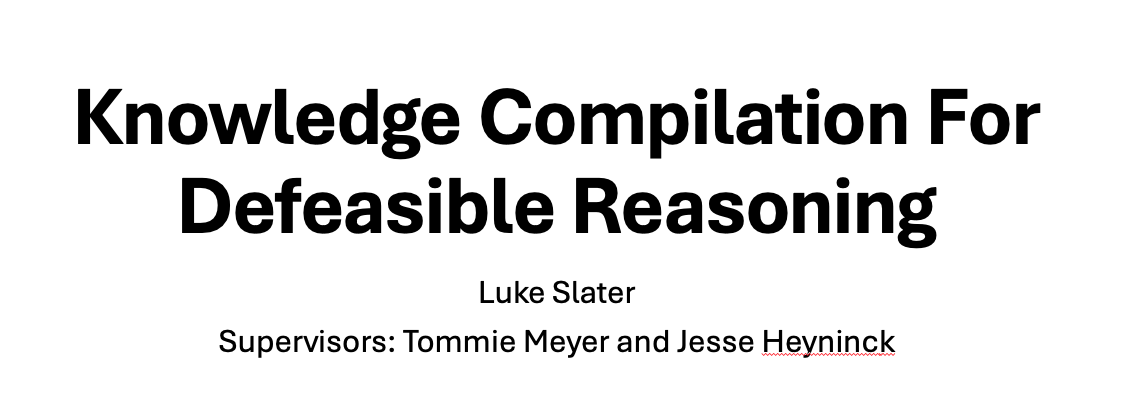Abstract
Our work tackles defeasible reasoning—reasoning with “usually true” statements like if it’s a bird, it probably flies. These conditionals are organized by plausibility: more general or typical rules get higher ranks, and lower-ranked, conflicting ones are progressively ignored until the knowledge base is consistent with the query. This ranking-based approach captures how humans reason about exceptions without collapsing into contradictions. The catch? It’s computationally nasty. So we use knowledge compilation—turning the logic into compact decision diagrams—to make this process fast enough to be practical.
Videos 1
Watch presentations, demos, and related content
Like, comment, and subscribe on YouTube to support the creator!
Gallery 1
Explore the visual story of this exhibit

Title Image